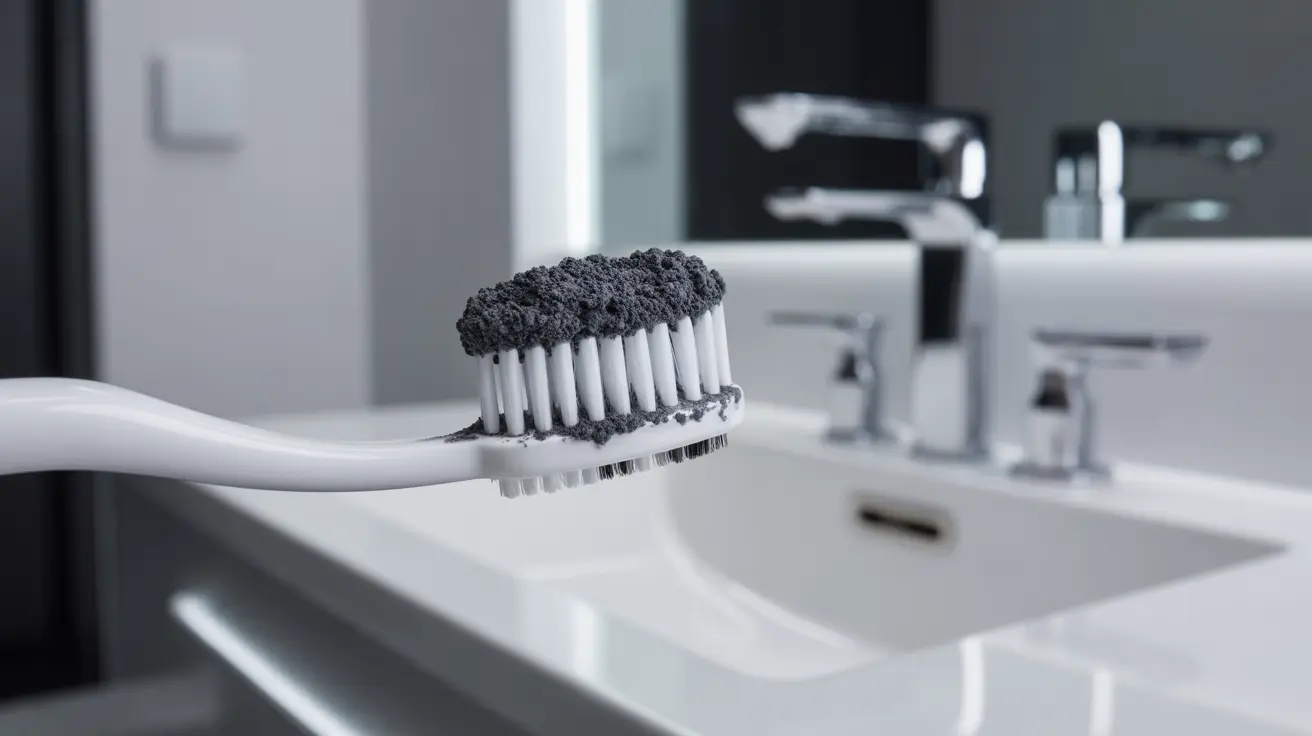The trend of using activated charcoal for teeth whitening has gained significant attention in recent years. As more people seek natural alternatives to traditional whitening methods, understanding the proper use, effectiveness, and safety of activated charcoal for dental care becomes increasingly important.
In this comprehensive guide, we'll explore the science behind activated charcoal teeth whitening, discuss safe application methods, and examine potential risks and benefits to help you make an informed decision about this popular dental trend.
Understanding Activated Charcoal and Its Whitening Properties
Activated charcoal is a fine black powder created by processing natural carbon sources at very high temperatures. The resulting substance is highly porous and has traditionally been used in medical settings for its ability to trap toxins and impurities.
When applied to teeth, activated charcoal works through a process called adsorption, where it binds to surface stains, plaque, and other compounds that cause tooth discoloration. However, it's important to note that its effectiveness is limited to surface stains rather than deep-set discoloration.
Safe Methods for Using Activated Charcoal at Home
Proper Application Technique
If you choose to try activated charcoal for teeth whitening, follow these steps for safe application:
- Wet your toothbrush slightly
- Dip it into high-quality food-grade activated charcoal powder
- Gently brush teeth for no more than 2 minutes
- Rinse thoroughly until water runs clear
- Use no more than once or twice per week
Important Safety Precautions
To minimize potential risks when using activated charcoal:
- Choose only food-grade activated charcoal
- Avoid scrubbing too vigorously
- Don't use if you have sensitive teeth or gum issues
- Discontinue use if you experience any discomfort
- Consult your dentist before starting any whitening routine
Comparing Activated Charcoal to Professional Whitening
While activated charcoal may offer some whitening benefits, it's important to understand how it measures up against professional treatments. Professional dental whitening procedures typically provide more predictable and dramatic results, using carefully controlled concentrations of proven whitening agents like hydrogen peroxide or carbamide peroxide.
Professional treatments also offer several advantages:
- Faster results
- More uniform whitening
- Professional oversight
- Reduced risk of enamel damage
- Longer-lasting effects
Understanding the Risks and Limitations
Before incorporating activated charcoal into your oral care routine, consider these potential drawbacks:
- Abrasiveness that may damage enamel
- Uneven whitening results
- Possible gum irritation
- Risk of staining dental work or restorations
- Limited scientific evidence supporting its effectiveness
Frequently Asked Questions
How does activated charcoal whiten teeth and does it really work?
Activated charcoal works by binding to surface stains and plaque through adsorption. While it may help remove some external staining, scientific evidence supporting its effectiveness for significant teeth whitening is limited. Results vary among individuals, and it's most effective for surface-level stains rather than deep discoloration.
What is the safest way to use activated charcoal for whitening teeth at home?
The safest approach is to use food-grade activated charcoal powder, brushing very gently for no more than 2 minutes, once or twice per week. Always wet your toothbrush first and rinse thoroughly afterward. Avoid aggressive scrubbing and stop use if you experience any sensitivity or discomfort.
What are the risks and side effects of using activated charcoal toothpaste on tooth enamel?
The main risks include potential enamel erosion due to charcoal's abrasiveness, uneven whitening, and possible gum irritation. Long-term use might lead to increased tooth sensitivity and damage to tooth enamel, especially if used too frequently or aggressively.
How does teeth whitening with activated charcoal compare to professional dental treatments?
Professional dental treatments generally provide more consistent, faster, and longer-lasting results compared to activated charcoal. While activated charcoal may help with minor surface stains, professional treatments can address deeper discoloration and offer controlled application under expert supervision.
Can activated charcoal toothpaste cause tooth sensitivity or damage if used regularly?
Yes, regular use of activated charcoal toothpaste can potentially cause tooth sensitivity and enamel damage due to its abrasive nature. This risk increases with frequent use or aggressive brushing techniques. People with existing tooth sensitivity or thin enamel should be particularly cautious.




